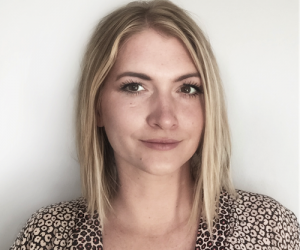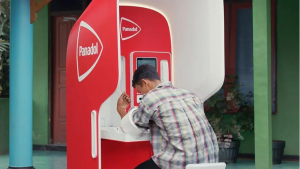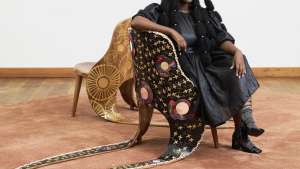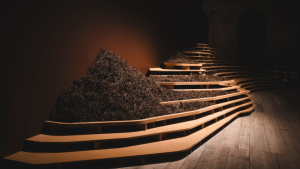Many South Africans don’t know about the 55 million litres of raw, untreated sewage that is pumped into the ocean off Table Bay and False Bay beaches in Cape Town. This revelation came from marine conservation photographer Jean Tresfon who posted an aerial photograph of the Table Bay coast on social media. The aerial photograph showed a large plume of sewage stretching across the blue waters of Table Bay. More images revealed that other Cape Town beaches are affected too.
Recent Red & Yellow School graduate Carina Bonse designed the Swimming In It armband alongside Gabi van Niekerk as part of their final year project. The armband is made from litmus paper that has the ability to test the E.coli level of ocean water. Once the armband is used in ocean water, the litmus paper will change colour according to how badly the water is affected by raw sewage.
Swimming In It is more than just an armband. It is accompanied by an app, a minibus, posters and postcards that will act as sources of information.
“We believe that public awareness is a starting point for change,” Bonse says.
By tracking the direction of the wind, coastal tides and storm water runoff, the app would notify swimmers, surfers and locals on the daily waste conditions at local beaches. The minibus, posters and postcards would all serve as public sources of information. Each poster would notify you about how much waste you’ll swallow, swim in, and be in contact with during a normal day at the beach. And the Swimming In It Truck will give out armbands to beachgoers.
“We asked locals what they thought about raw sewage being dumped just off our coasts on a daily basis and most of them were in shock. We decided that creating awareness around the issue would be the first step,” Bonse explains.
This issue is not limited to Cape Town beaches. All over the world, raw sewage is pumped into the ocean, increasing health risks and harming marine life. But Bonse believes it’s not too late to change the way sewage is treated and how it affects our oceans. “If our project expands on a worldwide scale we believe it will reduce harmful health risks and keep our oceans safe,” she says.











